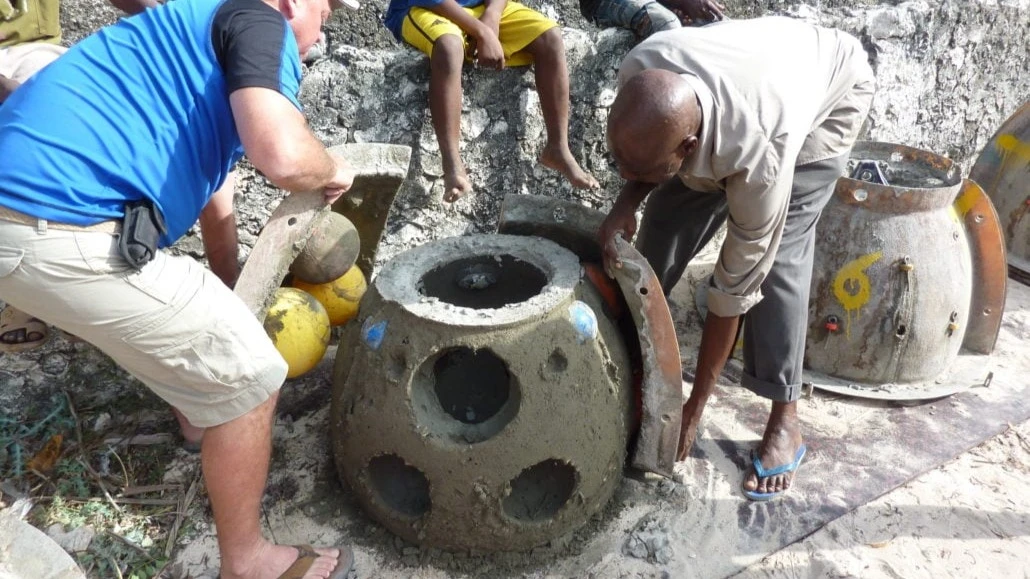Zanzibar installs artificial coral reef to enhance conservation

Zanzibar has begun installing artificial coral reefs using stones in degraded ocean areas to attract fish, boost tourism, and enhance the diving experience for visitors. These reefs also provide vital shelter, food, and breeding grounds for marine species.
Ilyass Nassoro, Head of the Management Division at the Zanzibar Commission for Tourism, shared this development during a recent workshop on the blue and circular economy for African journalists from the Indian Ocean region.
"To start with, artificial coral reefs have been installed at the Mnemba Island Marine Conservation Area (MIMCA) after identifying that natural coral reefs in traditional fishing zones were being destroyed," Nassoro stated.
The damage resulted from fishermen dropping anchors on reefs, unsustainable fishing practices, and tourist snorkeling activities.
"We aim to restore these reefs because Zanzibar heavily relies on tourism. It has become a top honeymoon destination globally after extensive international promotion," he added.
The initiative also seeks to ensure Zanzibar residents benefit from the blue economy, particularly through tourism and fishing. Given that these sectors support nearly two-thirds of the population, artificial reefs are a crucial investment in socio-economic development.
The workshop was organized by the Africa 21 Network, with support from the Ministry of Blue Economy and Fisheries, UNCTAD, the Sustainable Manufacturing and Environmental Pollution Programme (SMEP), the Western Indian Ocean Marine Science Association (WIOMSA), and the Swiss Embassy in Tanzania.
Climate change has significantly impacted Zanzibar’s tourism sector. Coral reefs, once a major attraction for divers, have been severely damaged. Other islands face beach erosion, while saltwater intrusion has rendered low-lying farmland unproductive.
To mitigate these effects, the government has introduced mangrove planting initiatives to curb coastal erosion and storm damage. Additionally, authorities are guiding fishermen and farmers on adapting to climate change to sustain their livelihoods.
Furthermore, dykes have been constructed in Tumba West, Pemba Island, to minimize saltwater intrusion on farms.
Thani Said, Manager of the Menai Bay Conservation Area (MBCA), highlighted that Zanzibar attracts eco-tourists for diving, snorkeling, and marine exploration, thanks to its coral reefs, seagrass beds, and mangroves. However, these ecosystems have suffered due to drag nets, poorly placed boat anchors, and rising ocean temperatures, leading to coral bleaching and fish migration.
"We chose Mnemba Island for artificial reef installation because it’s a prime snorkeling site where tourists can see diverse fish species, dolphins, sea turtle nests, and other marine life," he explained.
In Unguja Island, coral reef degradation is exacerbated by limited patrol staff and equipment. The MBCA currently operates with 15 marine rangers and four fiber boats, which are insufficient to curb illegal fishing and protect marine ecosystems.
"To effectively patrol the Menai Bay area, we need at least 10 fiber boats and 50–100 marine rangers, with three per boat," Said emphasized.
Zanzibar has four marine conservation areas—MIMCA, MBCA, Tumbatu Marine Conservation Area (TUMCA), and Changuu-Bawe Marine Conservation Area (CHAMCA). Each faces resource shortages that hinder effective patrols.
"For comprehensive protection, we need 200 marine rangers and at least 10 fiber boats per conservation area, each with a three-ranger crew," he noted.
Strengthening marine patrols will help combat unsustainable fishing, prevent illegal practices, and protect coral reefs, seagrass beds, and marine biodiversity. Ensuring a well-preserved marine ecosystem will also enhance tourism and coastal community livelihoods.
Hamad Hamad, Principal Secretary at the Ministry of Blue Economy and Fisheries, emphasized that tourism and fisheries are the backbone of Zanzibar’s economy, supporting two-thirds of the population. Tourism contributes over 29 percent to GDP, while fisheries account for 4.8 percent. More than 95 percent of Zanzibar’s fishing activity occurs nearshore, employing 60,000 people directly and 100,000 in related industries—17 percent of whom are women.
With increasing threats to marine ecosystems, Zanzibar’s artificial coral reef initiative represents a proactive approach to ecological preservation and economic sustainability.
By investing in conservation, the island secures its future as a premier marine tourism destination while ensuring long-term benefits for local communities.
Top Headlines
© 2025 IPPMEDIA.COM. ALL RIGHTS RESERVED

























